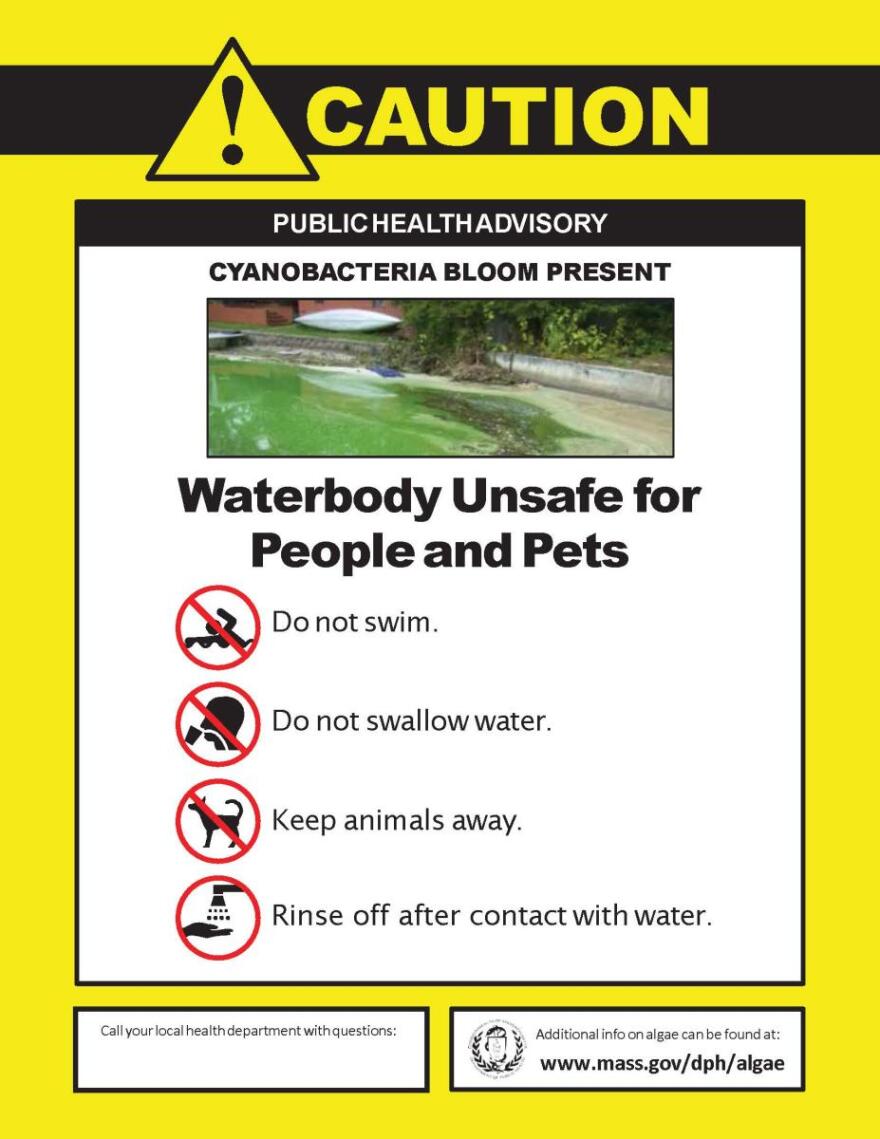Cyanobacteria closes Mashpee-Wakeby Pond, raising concerns of ‘toxic summer’
CAI
Eve Zuckoff
June 13, 2023

Local officials are warning people and their pets to stay out of one of the largest ponds on Cape Cod after a blue-green bloom was found to be producing toxins.
Conservation experts are concerned that a high number of local ponds could be impaired by the blooms — sometimes known as cyanobacteria blooms — this summer.
Locals reported the bloom on Mashpee-Wakeby Pond late last week to town officials, after noticing the pond water resembled pea soup.
Cyanobacteria is often bright green or blue-green and it permeates the pond down through the water column, distinguishing itself from pollen, which is yellow-green and stays mostly on the surface.
Ashley Fisher, the director Mashpee’s Natural Resources Department, said people should especially keep animals and small children out of the water to avoid getting sick.
“Be cautious just because small children and animals can consume the water,” she said. “But we tell all residents: when in doubt stay out.”

Exposure to toxic algae blooms has been known to cause skin irritation, stomach problems, headaches and worse.
Fisher said the town will retest the pond next week and wait for an all-clear before lifting the advisory. But, she said, she’s concerned by how early this algal bloom has been seen.
“It’s not unheard of, but it is early,” she said. “The last couple of years, it’s been in late July and early August. “
Last week, Falmouth officials also raised concerns about Coonamesset pond, where a “bright teal scum” was seen floating on the water at the shoreline.
Ultimately, this could be a big year for toxic blooms.
“We didn’t really see much of a freeze this year and this is early for us to see these scum layers forming,” Fisher said. “So we’re expecting those those cell counts to continue to go up. But we’re monitoring.”
Additional information about pond advisories across the Cape can be found at apcc.org/cyanobacteria.
Cyanobacteria closes Mashpee-Wakeby Pond, raising concerns of ‘toxic summer’ – CAI
